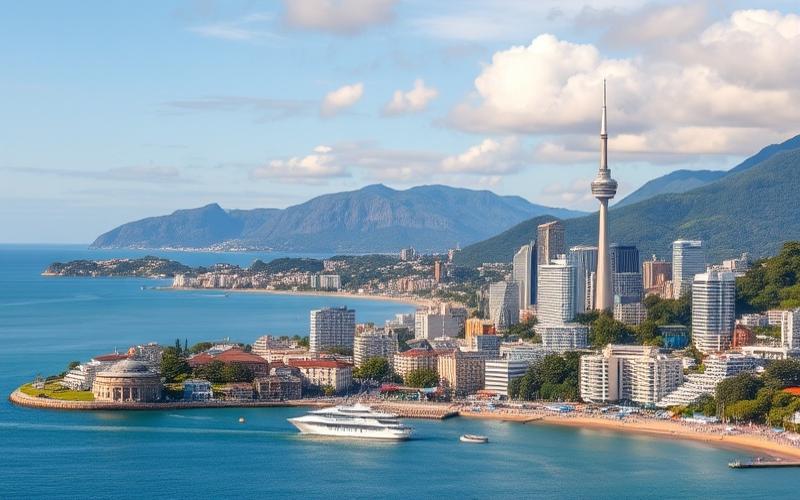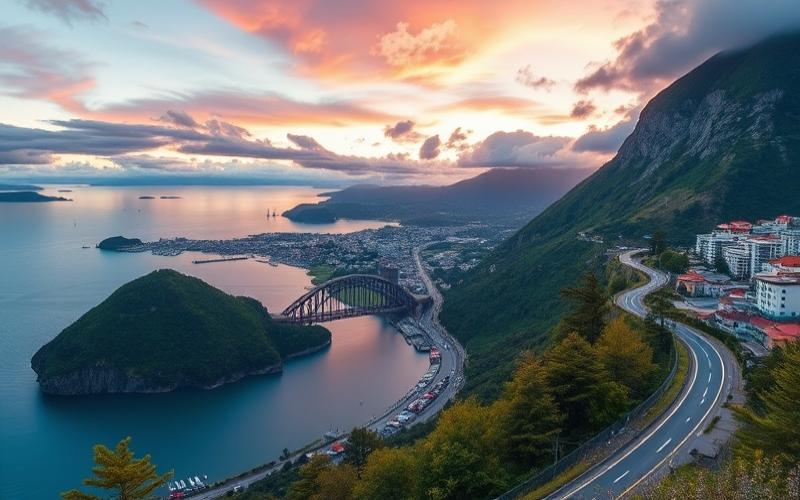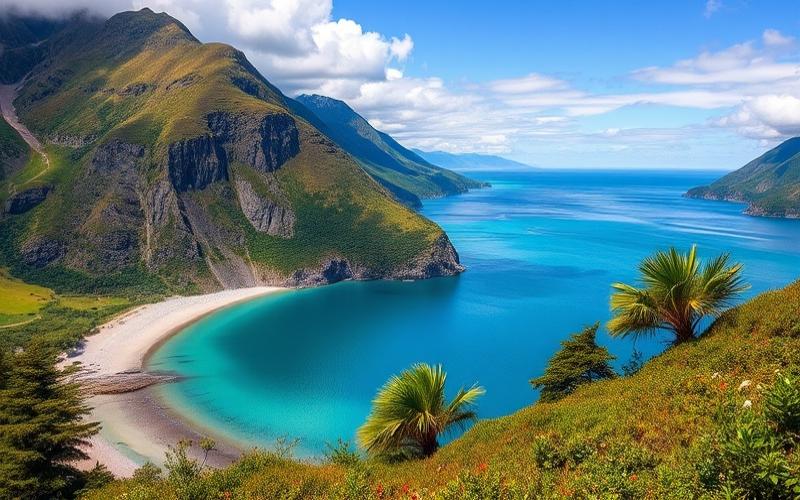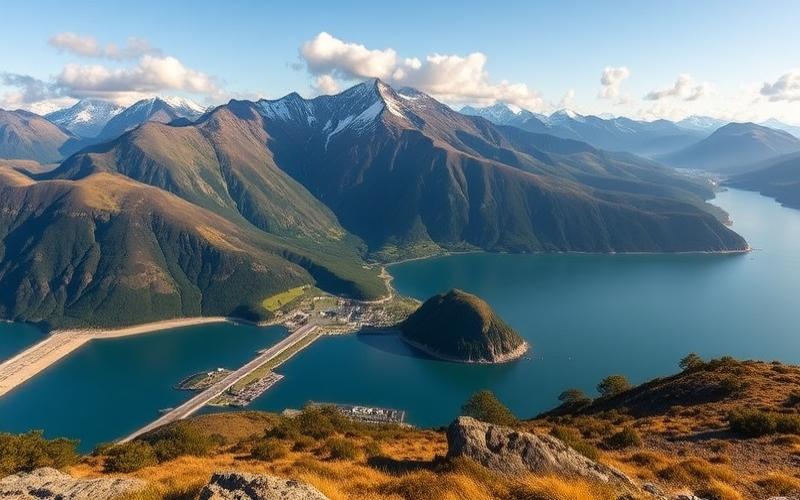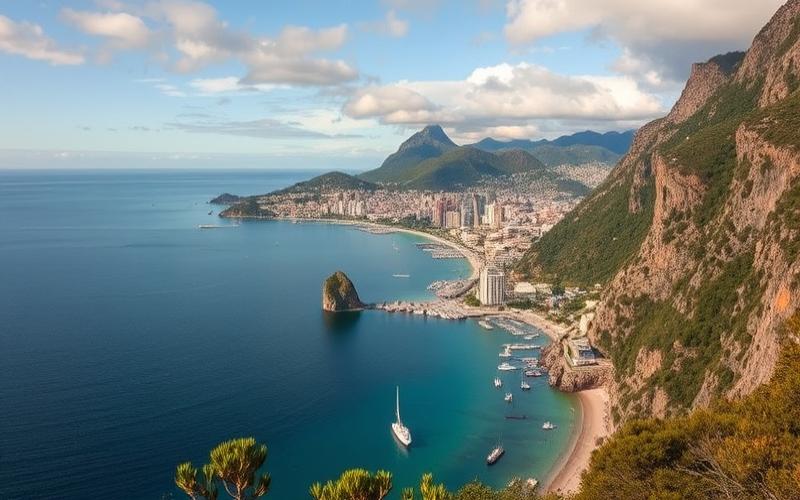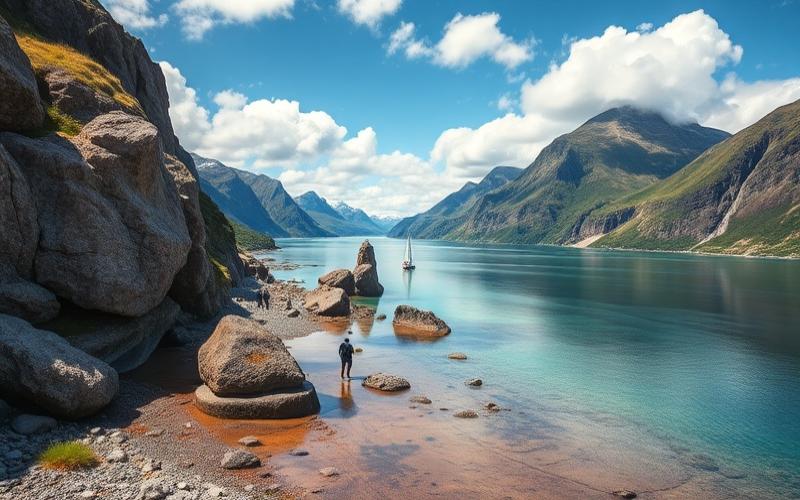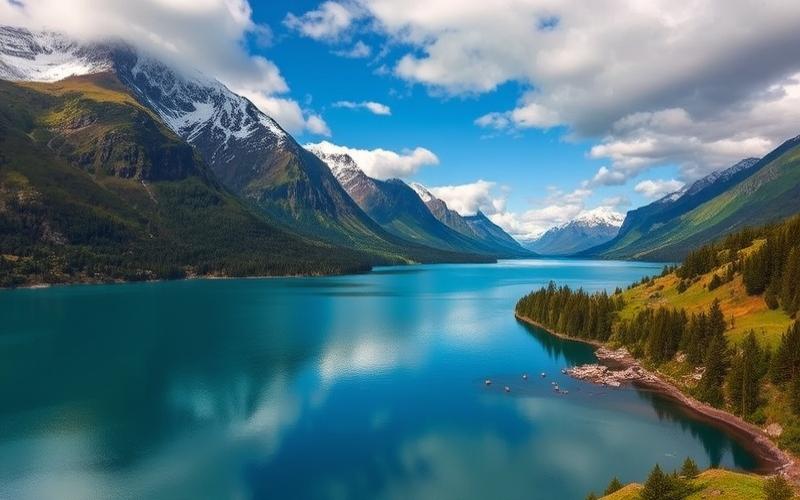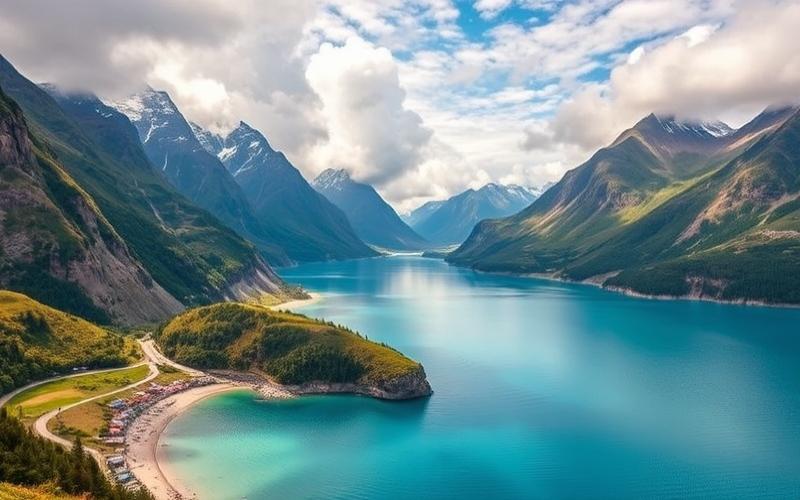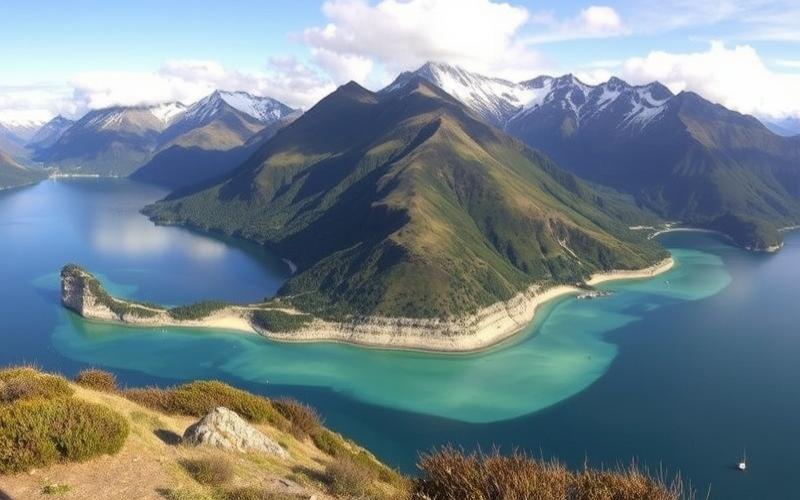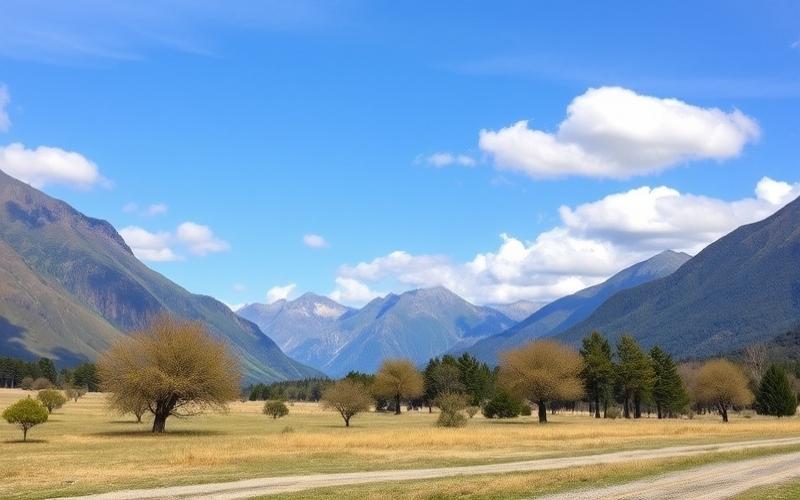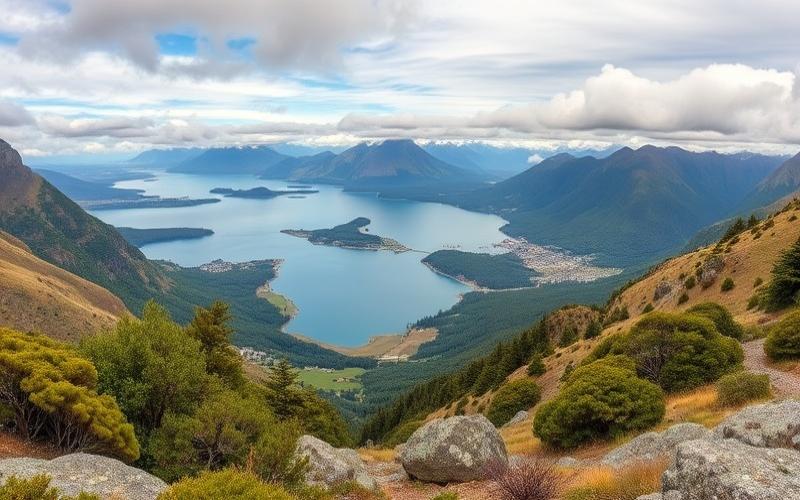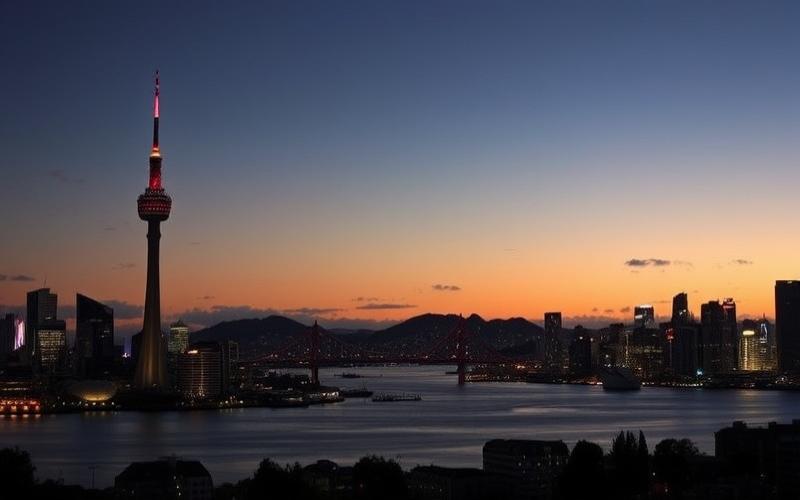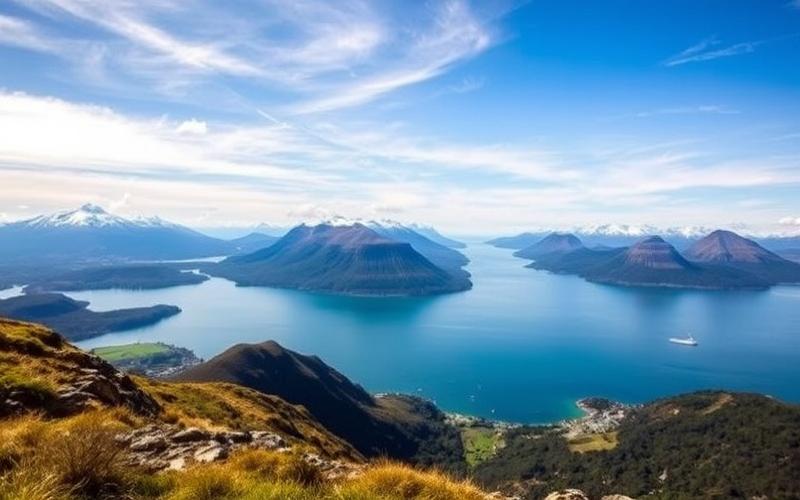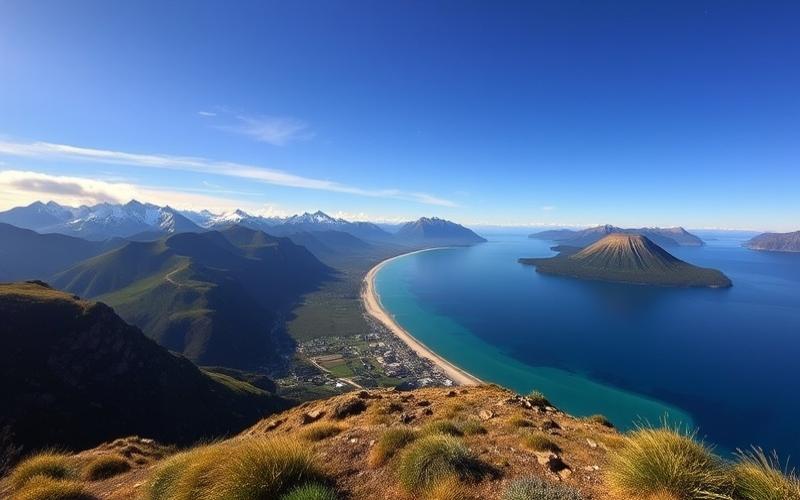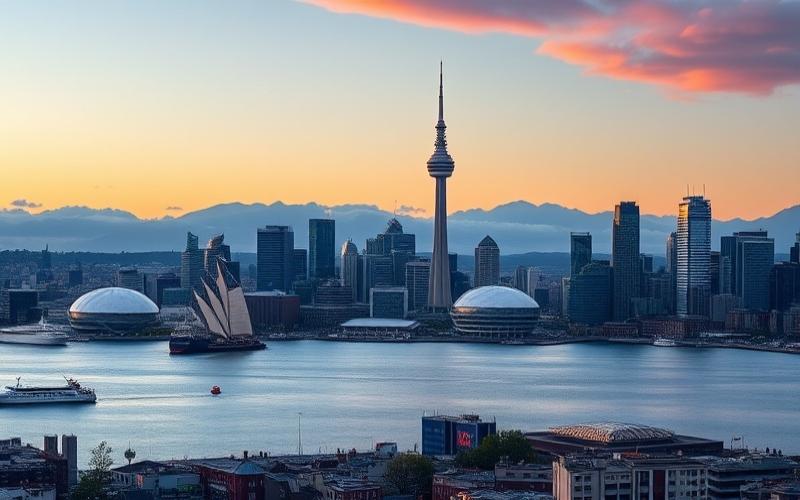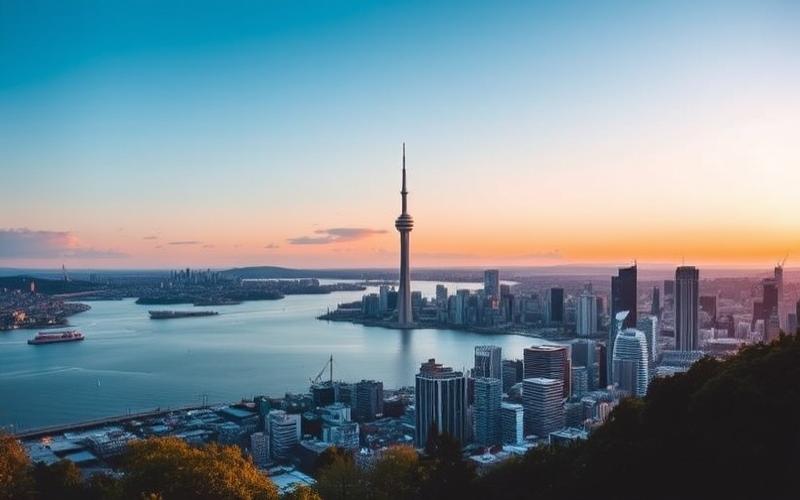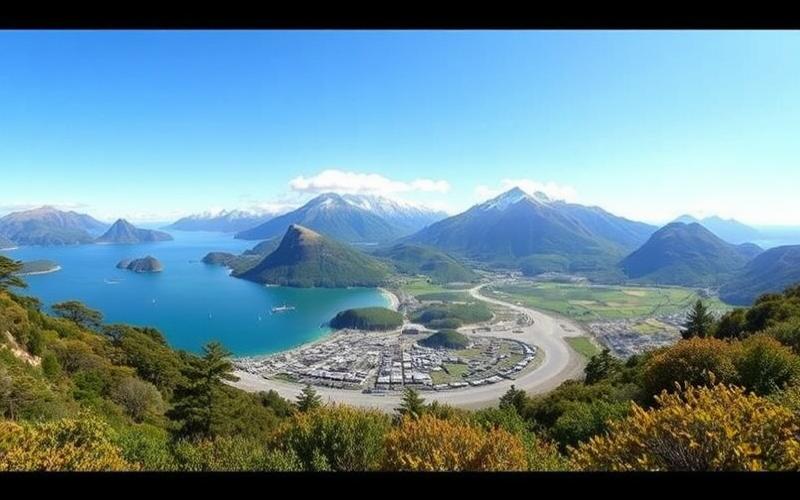
 Published on and written by Cyril Jarnias
Published on and written by Cyril Jarnias
Buying a Hotel in New Zealand: Complete Guide
Purchasing a hotel in New Zealand represents an exciting and potentially lucrative adventure, but it requires meticulous preparation to turn this dream into reality. This guide provides a comprehensive checklist to navigate through the essential steps of this complex process.
From selecting the right location to understanding local regulations, every aspect is broken down to ensure an informed and prosperous investment. Additionally, we cover market trends and available financing opportunities, enabling you to optimize your resources and anticipate potential challenges.
Explore the essentials for a successful purchase and maximize your chances of success in this competitive sector.
Good to Know:
New Zealand offers an exceptional natural setting, making it a sought-after tourist destination. Investing in a hotel here can therefore be very profitable if you choose the right location.
Overview of Hotel Real Estate in New Zealand
The New Zealand hotel market is experiencing a dynamic recovery in 2025 after a period of decline between 2021 and early 2024. Real estate prices in the tourism sector are expected to increase by 3.8% over the year, with an average annual growth estimated at +4% until 2029. This trend is supported by steady tourist influx and significant public investments (over $13 million NZD recently injected to accelerate tourism recovery).
Current Market Trends
- Widespread increase in hotel prices since mid-2024, driven by post-pandemic recovery and accommodative monetary policies.
- Rapid growth in major tourist regions like Queenstown, Rotorua, and Auckland.
- Strong demand for short-term accommodations (Airbnb), particularly in areas with high natural or urban appeal.
| City | Tourist Impact | Median House Price (2025) | Special Feature |
|---|---|---|---|
| Queenstown | Very High | >1,200,000 NZD | Airbnb Growth |
| Auckland | High | ~1,000,000 NZD | Urban Rentals |
| Rotorua | Moderate/High | ~650,000 NZD | Nature/Thermal Tourism |
Regional Variations: Supply and Demand
Some regions show spectacular growth:
- Southland: +17.7% year-on-year
- Gisborne: +13.4%
- Northland & Otago: approximately +8%
Major cities like Auckland or Wellington are experiencing either stagnation or a slight decline in prices after their previous surge. Secondary regions are attracting more investors due to their increasing financial accessibility.
Areas Favorable for Investment
The following destinations stand out:
- Queenstown: high profitability thanks to upscale international tourism.
- Rotorua & Bay of Plenty: strong appeal for nature/adventure tourism.
- Southland & Gisborne: emerging markets driven by improved infrastructure and demographics.
Types of Hotels Available
Diversity has increased in recent years:
- Eco-lodges & “boutique” lodges integrated into nature
- Traditional family motels
- Beach or thermal resorts
- Urban business/midscale hotels
- Upscale/luxury hotels targeting international clientele
Concrete example: the rise of eco-lodges around Tongariro National Park meets growing ecological demand, while Queenstown concentrates premium hotels with lake/mountain views.
Factors Influencing Hotel Prices
Several structural elements strongly impact price levels:
- Geographic location (proximity to natural sites or city centers)
- Level of local/tourist infrastructure
- Marked seasonality depending on region
- Foreign vs. local demand
- Size/capacity
- Positioning (luxury vs. budget)
A property located near an iconic natural site can see its rental yield double during peak season compared to less frequented areas.
Recent Legislative/Regulatory Developments
Measures have been taken to:
- More strictly regulate short-term rentals like Airbnb in certain saturated tourist municipalities;
- Encourage foreign investment under conditions in the hotel sector;
- Recently ease national monetary policy through lower key interest rates (-225 basis points) to support real estate/hotel acquisition;
- Strengthen environmental standards to meet growing ecotourism expectations;
Short/Medium-Term Projections
According to Reuters and several specialized analysts:
“Forecasts anticipate sustained growth until 2027 driven by overall economic recovery, the massive return of international tourism…”
The sector is expected to continue its transformation towards greater typological diversity (rise of eco-accommodation), while maintaining a steady pace in real estate valuation (+3% to +4% annual expected). Investors are encouraged to primarily target dynamic regional hubs where supply remains below structural demand.
Good to Know:
In 2023, the hotel real estate market in New Zealand is marked by growing demand for eco-friendly stays and clientele attracted to eco-lodges, particularly in the Queenstown and Rotorua regions, thanks to their proximity to the country’s natural wonders. While luxury hotels continue to attract investors in major cities like Auckland and Wellington, the market shows diversification towards smaller, more personalized establishments. Recently strengthened environmental regulations influence construction and renovation projects, encouraging a sustainable approach. Investors must pay attention to seasonal demand variations, with increased tourist influx during summer-winter peak seasons. Hotel property prices are influenced by location, type of amenities, and recent investments in tourist infrastructure. In the short term, the sector benefits from a post-pandemic return to normalcy, with solid growth projections for the next five years, favored by the country’s unparalleled tourism potential.
Essential Steps to Buy a Hotel in New Zealand
Preliminary Steps for Finding an Optimal Location
Define selection criteria: tourist traffic, budget, accessibility.
- Use online tools and interactive maps to visualize proximity to major attractions, public transport, and immediate environment.
- Utilize search filters (price, amenities, type of establishment) to refine your choice according to your needs.
- Read customer reviews and examine the neighborhood atmosphere to ensure an experience that meets your expectations.
List of Criteria to Analyze When Choosing a Location:
- Annual tourist volume
- Proximity to tourist sites
- Road accessibility and public transport
- Noise level and neighborhood ambiance
- Nearby commercial offerings
Importance of Market Study
Market study allows:
- Estimating real demand in the targeted area (tourist traffic measured via surveys or professional data).
- Comparing existing competition (number of similar hotels/aparthotels).
- Assessing profitability potential through cross-analysis between expected tourist flows and local operational costs.
Legal and Regulatory Procedures
For a foreign or local investor:
| Procedure | Description |
| Land Status Verification | Ensure the property is freely transferable. |
| OIO Consent | Required for certain foreign purchases (depending on country). |
| Urban Planning Control | Comply with local urban plan/zoning. |
| License Acquisition | Hotel operating authorization. |
Overseas Investment Office (OIO) consent is essential in some countries for any real estate purchase by a non-resident.
Financing Process
Common options:
| Investor Profile | Possible Solutions |
| Local | Traditional bank loan / lease financing |
| International | Offshore financing / local partnerships |
Practical Tips:
- Compare multiple bank offers considering fixed/variable rates.
- Plan for sufficient personal contribution according to local requirements.
Price Negotiation & Final Administrative Steps
Key Steps:
- Negotiate price based on local comparative studies.
- Conduct a thorough technical inspection (general condition, compliance with standards).
- Review all legal documents related to land title, potential charges, or ongoing disputes.
- Finalize with signature before a notary or sworn agent according to local regulation.
Support from Local Experts
It is highly recommended:
- To enlist a lawyer specialized in real estate/hotel law to legally secure the transaction.
- To rely on a real estate agent expert in this type of acquisition to optimize each step: negotiation, regulatory compliance, financial structuring.
The joint intervention of legal and commercial advisors often leads to a more serene and profitable acquisition in the long term.
Good to Know:
When buying a hotel in New Zealand, start by targeting a strategic location based on tourist traffic and your budget, prioritizing sought-after regions like Auckland or Queenstown. A thorough market study is crucial to assess potential profitability; this includes analyzing local trends and competition. For foreign investors, obtaining consent from the Overseas Investment Office (OIO) may be necessary. Financing can be done through traditional loans or partnerships, with specific options for international investors. Effective price negotiation relies on meticulous property inspection and rigorous verification of legal documents. Finally, get assistance from local professionals such as specialized lawyers or real estate agents who can guide you through the administrative and legal process.
Due Diligence in New Zealand Hospitality
Key Steps of Due Diligence When Buying a Hotel in New Zealand
- Detailed financial analysis: examination of financial statements, cash flow, profitability, and debts.
- Verification of licenses and permits: ensure all necessary authorizations for hotel operation (accommodation license, alcohol permit, fire safety compliance) are valid.
- Evaluation of existing contracts: analysis of commercial leases, contracts with suppliers/partners, and staff agreements.
- Independent technical inspection of the property: production of a report on the building’s general condition including specific diagnostics (presence of asbestos, moisture).
- Official evaluation by a registered valuer to determine the property’s actual value.
- Complete legal verification by a local lawyer regarding land title, potential charges, and easements.
Legal Considerations Specific to the Sector
Strict compliance with local regulations regarding hotel operation (sanitary standards, fire safety).
Compliance with New Zealand real estate laws including notably:
- Restrictions related to purchase by foreigners via the Overseas Investment Office (OIO) for certain sensitive properties or depending on the buyer’s residential status
- Study of applicable urban zoning for the intended activity
- Check with the local council regarding any undeclared work
Environmental Aspects to Consider
Assessment of energy sustainability: building thermal insulation, overall energy consumption.
Compliance with local ecological standards: responsible waste management, limitation of potable water consumption, and potential use of renewable energies.
| Environmental Aspect | Recommended Approach |
|---|---|
| Energy Consumption | Energy Audit |
| Presence of Hazardous Materials | Asbestos/Lead Search |
| Waste Management | Internal Process Control |
| Ecological Certifications | Search for Labels/Attestations |
Importance of Physical Inspection
Physical inspection allows:
- Identifying immediate or future renovation/maintenance needs
- Detecting any structural or technical non-compliance that could affect future value or operability
Typical checklist for this inspection:
- Roof/Waterproofing
- Electrical/Plumbing Systems
- Load-bearing Structure/Walls
- Accessibility for People with Reduced Mobility
Consultation with Local Professionals
It is advisable:
- To systematically surround yourself with:
- A lawyer specialized in New Zealand real estate/hotel law,
- An accountant familiar with local tax specifics,
- And as needed: architect/environmental advisor.
These professionals help secure each legal/fiscal step and anticipate any hidden risks.
Examples & Case Studies – Successes & Failures
Some lessons learned from the international hotel market—several applicable to the New Zealand context:
| Example | Key Success/Failure Factor | Lesson Learned |
|---|---|---|
| Successful Acquisition (dynamic tourist markets) | Thorough market analysis + full document compliance | Importance of upfront preparation |
| Failed Acquisition (undeclared work discovered after purchase) | Lack of physical inspection & legal verification | Necessity of dual technical/legal control |
To remember: Success always comes from a structured approach combining multidisciplinary local expertise and proactive anticipation of technical/legal/environmental risks.
Good to Know:
When considering purchasing a hotel in New Zealand, rigorous due diligence is crucial. Start with a detailed financial analysis of the establishment, examining past revenues and expenses, before verifying mandatory licenses and permits for hotel operation. Real estate laws and local hospitality regulations must be considered; engage a specialized lawyer to ensure compliance. Environmentally, assess the hotel’s sustainability and its compliance with New Zealand ecological standards, an increasingly critical aspect. Physical inspection of the property plays a key role in detecting maintenance needs or costly renovations. Advice from local experts, such as accountants or lawyers familiar with the market, is valuable. Learn from past mistakes; some buyers underestimated the importance of these steps and faced unexpected expenses, as in the example of a hotel acquisition in Auckland where failure to verify contracts led to costly legal complications.
Influence of Tourism Statistics on Hotel Purchases
Tourism statistics play a decisive role in the decision to buy a hotel in New Zealand, as they provide a clear view of potential demand, seasonal cycles, and the most attractive geographic areas for visitors.
Current Tourism Trends in New Zealand:
- The number of tourist arrivals saw a significant increase in early 2025 (+13.4% year-on-year in January), reaching 370,238 visitors that month. This recovery places the country at 93% of pre-pandemic levels from January 2019.
- Main source markets are Australia, China (with a peak around Chinese New Year), the United Kingdom, Taiwan, South Korea, Germany, and the United States.
- The high tourist season generally extends from December to February (Southern Hemisphere summer) with additional peaks during major events or international holidays like Chinese New Year.
| Month | Arrivals (2025) | Annual Variation | Main Seasonality |
| January | 370,238 | +13.4% | High Season – Summer & Chinese NY |
| February | 354,408 | -2.3% | End of High Season |
Economic Impact of Tourism on the Hotel Market:
- In 2023, tourist spending reached nearly $37.7 billion NZD (+39.6% compared to the previous year), highlighting the structural importance of the sector for the New Zealand economy.
- Tourism growth drives strong demand for different types of accommodation (traditional hotels but also short-term rentals like Airbnb).
- In main tourist areas (Queenstown-Lakes, Rotorua, and Auckland), this pressure has contributed to a marked increase in real estate and hotel prices.
| Tourist Area | Recent Median Increase (2020–24) |
| Queenstown-Lakes | +34% |
| Rotorua | +22% |
| Auckland | +18% |
How Do These Statistics Guide Investors?
Tourism data allows investors to:
- Geographically target their purchase towards regions with the strongest growth or where attendance already exceeds pre-Covid levels.
- Adapt their offerings to the dominant client profile according to the period: upscale urban hotels in major cities; nature/adventure accommodations in Queenstown or Rotorua; establishments suitable for families or groups during foreign school holidays.
List of key criteria guided by these statistics:
- Select a city/region showing sustained growth and well-identified seasonal peaks
- Prioritize a flexible establishment capable of absorbing peaks/dips linked to international events
- Invest in modern infrastructure meeting specific expectations according to expected dominant nationalities
Concrete Examples:
Hotels located in Queenstown have leveraged these trends:
- By adapting their promotional offers during Chinese New Year to specifically attract this growing clientele,
- By diversifying their services towards the upscale segment in response to increased demand from both local and international markets,
- Some hotel groups invested heavily after fine analysis of monthly data to adjust their available capacity only during the summer high season.
Future Forecasts and Implications for Hotel Investors:
Projections until 2029 anticipate average annual growth around +4%, driven by:
- Continued diversification towards more Asian tourists,
- Massive government support (>13 million NZD recently injected),
- A complete recovery expected by end of 2025 with gradual return to pre-pandemic record levels.
For a potential hotel investor:
Precise understanding—via recent statistical analyses—not only optimizes commercial chances but also asset valuation over several years thanks to the expected structural dynamism of the New Zealand tourism sector.
Good to Know:
Tourism statistics in New Zealand play a crucial role in hotel purchases, dictating the choice of location and type of establishment to buy. With over 3 million annual visitors, peaking during the summer months between December and February, this data indicates the best times to maximize bookings. Tourism representing nearly 6% of New Zealand’s GDP, its significant impact guides investors towards high-demand areas like Queenstown or Auckland. For example, a hotel that opened in Rotorua leveraged the appeal of geothermal sites by optimizing its services for Asian travelers, an expanding market. Forecasts indicating continued growth in international tourism offer favorable prospects for investors ready to anticipate seasonal demand trends, guiding their purchase strategies to maximize returns.
Disclaimer: The information provided on this website is for informational purposes only and does not constitute financial, legal, or professional advice. We encourage you to consult qualified experts before making any investment, real estate, or expatriation decisions. Although we strive to maintain up-to-date and accurate information, we do not guarantee the completeness, accuracy, or timeliness of the proposed content. As investment and expatriation involve risks, we disclaim any liability for potential losses or damages arising from the use of this site. Your use of this site confirms your acceptance of these terms and your understanding of the associated risks.


